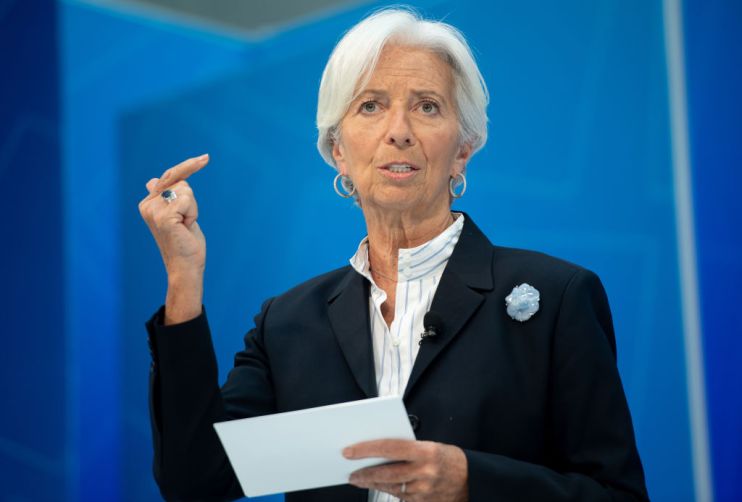ECB’s Christine Lagarde asked Eurozone to consider joint ‘coronabonds’

European Central Bank (ECB) president Christine Lagarde asked Eurozone finance ministers yesterday to seriously consider launching joint “coronabonds” to help countries in the currency area which have been put under stress by the coronavirus outbreak.
However, the idea of issuing joint debt for the whole of the euro area was opposed by Germany, the Netherlands and other European nations that are traditionally financially conservative, according to Reuters.
The request from Lagarde came after the ECB launched a €750bn (£700bn) bond-buying programme to support Eurozone markets and the economy as coronavirus spreads on the continent.
The ramping up of so-called quantitative easing (QE) – under which the ECB creates digital money to buy government and company debt – was driven by an increase in pressure on countries such as Italy, which have seen borrowing costs rise as their economies slow.
So-called periphery nations such as Italy, Portugal and Spain are keen on the issuance of common Eurozone debt, which could help them fund the spending needed to tackle the virus at a lower cost.
On Monday, Carlos Costa, an ECB board member who is governor of the Bank of Portugal, said issuing a “coronabond” would stop financial markets from targeting the “weakest link”.
Yet countries like Germany, who espouse fiscal responsibility and balanced budgets, are broadly opposed to the idea of helping lower other countries’ borrowing costs.
A source at the finance ministers’ meeting told Reuters that Lagarde said governments “should seriously think about” issuing joint bonds.
Another source said: “There was opposition from the usual corners, but also a lot of support beyond Club Med.”
Lagarde has faced criticism for adding to the pressure faced by periphery countries like Italy following a communications gaffe when she said the ECB is “not here to close [bond] spreads”.
This caused investors to sell-off Italian bonds which made yields (which move inversely to prices) jump, adding to the stress the government currently faces.
Yields have since fallen and prices risen after the launch of the ECB’s bond-buying programme.